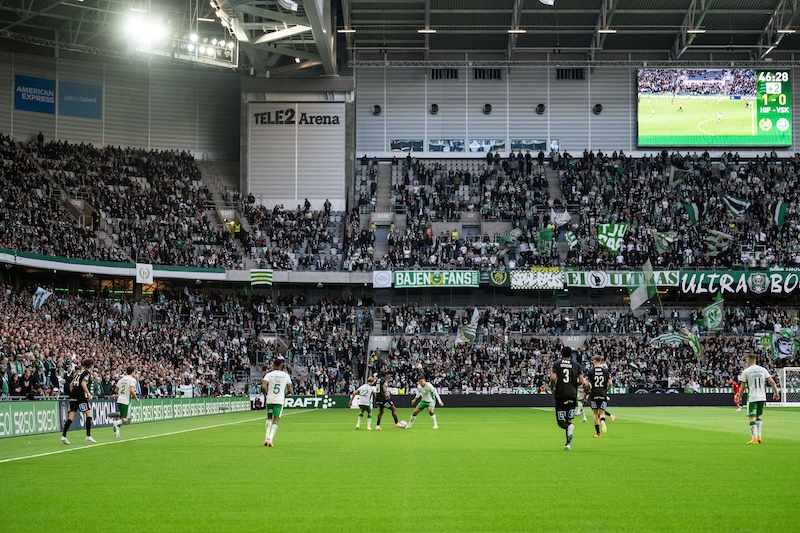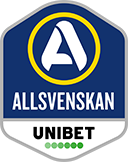The European Leagues, the international umbrella organization for European leagues, has consulted with its members to develop a list of priority points for the upcoming EU mandate period 2024-2029. This list outlines the policy that the European Leagues and the leagues will focus on in football politics over the coming years.
The European Parliament elections will be held in Brussels from June 6-9. In conjunction with this, the European Leagues have developed both policy points and an action plan to ensure that international football is developed, protected, and preserved in the best possible way.
Sport in general, and football in particular, is an integral part of the European cultural identity. Europe has played a fundamental role in the development of modern sports competitions worldwide for over 150 years. Football originated in Europe, where the rules were created and the game was spread to new participants around the world. Today, many world-class sports and football competitions continue to be developed and organized in Europe, attracting hundreds of millions of spectators and TV audiences, while also funding grassroots and amateur sports within the community.
In addition to the cultural and emotional connections that Europeans have to sport and football, they also promote social cohesion, increase social inclusion, and improve the health of millions of people across the continent.
Furthermore, sport is an important economic driver in Europe: it accounts for more than 2% of Europe’s total GDP and nearly 3% of employment in the EU. Football plays a major role in this.

These policy points are considered priorities by the European Leagues and its members for the mandate period 2024-2029:
- Continue to promote and protect sustainable and viable models for sports competitions in Europe, with the intention that sporting merit should be a relevant criterion for success and support athletes at all levels, from elite to grassroots.
- Improve the governance of sports and football in Europe with respect for the autonomy of sports within the EU, while working to enhance the implementation and enforcement of a more transparent, objective, and non-discriminatory set of rules for governing our sport.
- Continue to promote the improvement of relations between employers and employees in the European social dialogue for the professional football sector.
- Continue to support the freedom for sports event organizers, including domestic league football competitions, to license our content on a territorial basis and maintain the current system of justified geo-blocking.
- Adopt legislation to combat illegal piracy of live content, considering the effects of the European Commission’s 2023 recommendation.
- Establish statutory mandatory criteria for sports betting licensees in Europe to only use official data sources to protect the integrity and intellectual property rights of sports.
- Engage relevant football stakeholders both in Europe and at the member state level for the implementation of the new anti-money laundering rules applied to football clubs.

Continue to Promote and Protect Sustainable and Viable Models for Sports Competitions in Europe
Promote and protect sustainable and viable models for sports competitions in Europe, with the intention that sporting merit should be a relevant criterion for success and support athletes at all levels, from elite to grassroots. Europe has some of the most exciting sports competitions in the world. The key to maintaining this excitement is the fundamental values of fairness, integrity, and solidarity. This forms the foundation of the sustainable and successful structure of sports governance in Europe that our members wholeheartedly support. European Leagues members are committed to promoting a model of deserved success, ensuring that the best teams and athletes can rise to the highest levels, while organizers of elite sports competitions provide meaningful financial and practical support that trickles down to the grassroots level.
In this context, the national leagues support the fundamental principles of openness and qualification for international competitions via domestic competition performances while always respecting weekends reserved for domestic leagues.
Respect the Autonomy of Sport While Improving Its Governance Models
Improve the governance of sport and football in Europe while respecting the important principle of sports autonomy within the EU, and work to improve the implementation and enforcement of a more transparent, objective, and non-discriminatory set of rules to govern our sport. The recent ruling from the European Union Court of Justice in the Super League case requires a more transparent, objective, and non-discriminatory set of rules to govern professional football. In the football context, it is fundamental that all stakeholders must be held accountable for how they implement processes and make decisions, especially when these decisions—such as those regarding calendar issues—affect the entire ecosystem and strongly impact the base of the pyramid that forms the foundation of the entire football industry.
European Leagues call on policymakers to promote the implementation of an international football governance model based not only on consultation but rather built on a more inclusive model of structured co-decision that could take into account all stakeholders’ legitimate interests in the game.
Improve Social Dialogue
Improve relations between employers and employees in the European social dialogue for the professional football sector. European Leagues are an official social partner representing employers’ interests in the European social dialogue for the professional football sector coordinated by the European Commission’s Directorate-General for Employment, Social Affairs and Inclusion.
Leagues urge policymakers to continue investing in promoting industry-based relational social dialogue in the professional football sector. Our member leagues are committed to implementing collective bargaining agreement (CBA) practices across Europe between leagues, clubs, and player unions.
Preserve Territorial Exclusivity
Continue to support the freedom of sports event organizers to license our content on a territorial basis and maintain the current system of justified geo-blocking. Sport and football are inherently territorial. Whether it’s the popularity of a certain competition or sport in a specific geographical area, the focus on commentary on a particular team or athlete, or simply the language in which it is delivered, our member leagues’ content is distributed across Europe on a territorially exclusive basis. This is evident in the so-called “listed events” that must be shown on free-to-air TV, as these differ from country to country, depending on local tastes and sports priorities. Most importantly, territorial exclusive licensing is something that our broadcasting partners want and expect.
Territorial exclusivity is and will continue to be the most effective model for the sports sector as it suits our business models’ diversity and provides the greatest benefits for our consumers, as it:
- Allows consumers to enjoy quality offerings that meet local needs;
- Generates revenue that sports organizations redistribute and invest in further growth and development of their sports, particularly at grassroots and community levels;
- Enables stronger and fairer competition among broadcasters in Europe and prevents the largest media conglomerates from gaining disproportionate levels of market power; and
- Benefits many commercial partners and local/national businesses that can capitalize on the associated opportunities arising from the diversity of advertising and sponsorship offerings.
If the ability to legally geo-block our content were removed, thus introducing a de facto pan-European licensing system, consumers across the EU would likely pay more to access their content, which would inevitably be priced at its most valuable (i.e., almost always its domestic) market price. Additionally, the range of content would decrease, including the customization of content to individual markets, languages, and geographies, as it would no longer be economically feasible. Pan-European licensing would likely benefit the largest broadcasters, often not based within the EU. This would result in many broadcasters, especially those from Member States with smaller media markets, being unable to compete and thus losing significant revenues due to the lack of premium content available on their channels.
The cost of such a measure has been estimated at €2 billion in lost revenues annually, equivalent to 15% of sports revenues and up to a 26% revenue loss for less popular sports. This would therefore have a major impact on the funds available for redistribution down the sports pyramid.
Combat Piracy
Enact legislation to combat illegal piracy of live content, taking into account the effects of the 2023 European Commission recommendation. Illegal online piracy of our members’ content is one of the biggest threats to our sector. It has been estimated that the annual global cost of piracy amounts to $28 billion.
These are revenues that should be in the hands of the legitimate owners and creators of the content, not in the hands of organized crime. Furthermore, this is not a problem that only affects pay-TV broadcasts. In fact, free-to-air TV also experiences significant levels of piracy. Therefore, it is clear that the often-made insinuation that illegal piracy is inherently linked to an alleged lack of content availability is simply not true.
For these reasons, European Leagues have long campaigned together with SROC for greater policy action to combat live content piracy. We welcomed the European Commission’s recommendation to combat online piracy of sport and other live events, published in May 2023, which recognizes the problems specifically for live sports events. We are actively evaluating the effects of this recommendation. However, we continue to believe that a legislative solution is necessary and will be the only effective solution to hold pirates and their facilitators accountable for putting an end to this scourge on our industry. This position has been echoed by Members of the European Parliament, and we are hopeful that a legislative proposal will be presented following the conclusion of the evaluation of the recommendation in November 2025. As the European institutions have long said, what is illegal offline should be illegal online, and when it comes to piracy, it is crucial that the European rule of law is upheld in its entirety.
Protect the Integrity of Sport through Official Data
Establish legislative criteria for sports betting licensees in Europe to only use official data sources to protect the integrity of sport and intellectual property rights. One of the major challenges faced by sports rights holders comes from the betting industry. The betting market in Europe is predicted to be worth over €82 billion by 2030.
Despite providing the raw material for a large amount of revenue for bookmakers, sports event organizers receive no fair return.
A critical area through which sports organizers can protect the commercial exploitation of their competitions by betting operators is through the licensing of official sports data. In recent years, however, it has become increasingly common for unofficial data sources to offer their services at reduced prices, thereby taking away further revenue from the sports ecosystem that, as in other cases, could be reinvested down the pyramid.
SROC therefore advocates for the creation of an obligation, preferably through European legislation, to require betting operators to only use official data sources when conducting their economic activities.
Implement the New Anti-Money Laundering Rules
Engage relevant football stakeholders both in Europe and at the Member State level for the implementation of the new anti-money laundering rules applied to football clubs. European Leagues, along with other European football stakeholders, took note of the European Parliament’s recently adopted new EU anti-money laundering rules that, for the first time, will include, from 2029, football clubs as obligated entities under the new legislation. The leagues share the EU’s goals of combating financial crime while having higher levels of scrutiny over financial transactions within football with the aim of protecting the integrity and long-term sustainability of the game at all levels. Appropriate engagement with leagues and other football stakeholders at the European and national levels over the coming years is needed to ensure optimal national implementation of the EU rules and to maintain the continued development and growth of Europe’s diverse and historic football landscape.
















